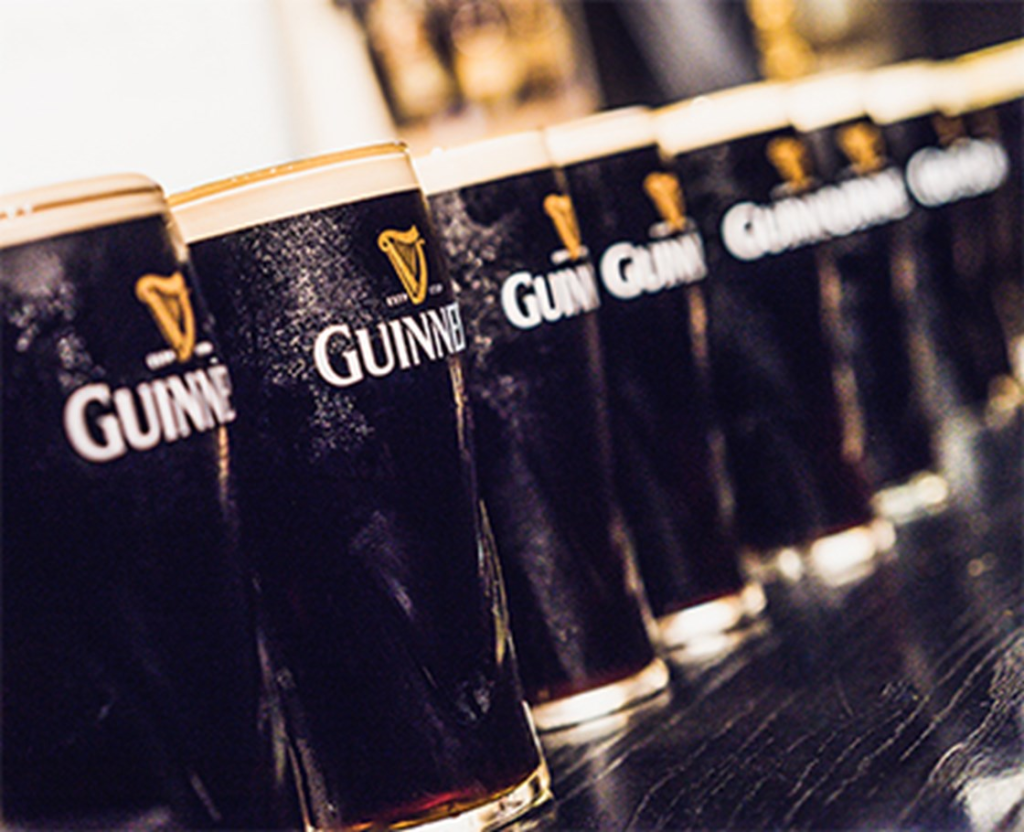
Guinness, the iconic Irish stout with its creamy head and dark colour, has long been associated with health benefits. From its historical use as a “blood builder” for those who donated blood to its status as a heart-healthy drink, Guinness has a reputation as more than just a tasty beverage. But is there any truth to these claims? Let’s dive into the science behind Guinness and explore its potential health benefits, keeping in mind moderation is always key.
Debunking the Myths: Iron and Replenishing Blood
One of the most enduring myths about Guinness is its high iron content. The dark color comes from roasted barley, not iron, and a pint of Guinness only contains around 0.3mg of iron. This falls far short of the daily recommended intake (8.7mg for men and 14.8mg for women). So, while Guinness might not be a magic bullet for iron deficiency, it does contain some.
Another myth is that Guinness was traditionally given to blood donors to help replenish their iron stores. While this practice persisted surprisingly late (up to 2010!), it’s not backed by science. Far more effective ways to replenish iron after donation exist.
The Truth About Antioxidants and Heart Health
While the iron claims might be overblown, there’s some truth to the idea that Guinness can be heart-healthy, in moderation. Here’s why:
- Antioxidants: Like red wine and dark chocolate, Guinness contains antioxidants called polyphenols, found in barley and hops. These antioxidants may help reduce “bad” LDL cholesterol and protect against heart disease by slowing the buildup of plaque in arteries.
- Blood Clots: A 2003 study at the University of Wisconsin found that Guinness, compared to lagers like Heineken, reduced blood clot formation in dogs. While more research is needed, it suggests Guinness might have some anti-clotting properties that could benefit heart health.
- Moderate Beer Consumption: Several studies have shown moderate beer consumption (up to one drink per day for women and two for men) to be associated with a decreased risk of cardiovascular disease and overall mortality. However, it’s important to remember that these benefits are likely due to the combined effects of all the ingredients in beer, not just those specific to Guinness.
Important to Note: While these studies show potential benefits, it’s crucial to remember that Guinness still contains alcohol. Excessive alcohol consumption can significantly negate any potential health benefits and lead to serious health problems.
Beyond the Heart: Other Potential Benefits of Guinness

- Bone Health: Beer contains a plant hormone called phytoestrogen, which can help build bone density. Additionally, Guinness has some calcium and dietary silicon, both important for bone health.
- Folate, Fiber, and Prebiotics: Guinness is a good source of folate, a B vitamin crucial for DNA production. The barley in Guinness also provides some fiber and prebiotics, which can contribute to gut health.
- Anti-inflammatory Properties: Studies suggest that hops, a key ingredient in beer, might have anti-inflammatory properties.
It’s important to remember that these benefits are relatively small and shouldn’t be the sole reason to drink Guinnes’s.
The Bottom Line: Enjoy in Moderation
Guinnes’s, like most things in life, is best enjoyed in moderation. Here’s a quick recap:
- The iron content in Guinness is minimal and unlikely to significantly impact iron stores.
- Guinness contains antioxidants that might offer some heart health benefits, but these are likely outweighed by the negative effects of excessive alcohol consumption.
- Moderate beer consumption, including Guinness, has been linked to some health benefits, but these benefits are likely due to the combined effects of all the ingredients in beer, not just those specific to Guinness.
- Guinness offers small amounts of folate, fiber, prebiotics, and potentially some anti-inflammatory properties.
Remember:
- Consult your doctor before increasing your alcohol intake for any perceived health benefits.
- If you choose to drink Guinnes’s, do so in moderation according to dietary guidelines.
- If you have any underlying health conditions, speak to your doctor before consuming Guinnes’s.
Guinnes’s can be a delicious and enjoyable drink, but it’s not a health elixir. By understanding the potential benefits and limitations, you can make informed choices about including Guinnes’s in your diet – as part of a balanced lifestyle and moderate alcohol consumption.
FAQs
Q: Is Guinness really good for you?
A: Not exactly. Guinnes’s, like most beers, contains some potentially beneficial nutrients, including antioxidants, B vitamins, and fiber. However, the alcohol content outweighs these benefits.
Q: But isn’t Guinnes high in iron, good for after donating blood?
A: This is a misconception. While Guinnes’s does contain a small amount of iron, it’s not nearly enough to be a significant source. You’d need to drink a massive amount (not recommended!) to get any meaningful iron boost.
Q: So, Guinnes’s has no health benefits at all?
A: Not necessarily. Moderate beer consumption (think one drink a day for women, two for men) has been linked to some health benefits, including reduced risk of heart disease and increased bone density. However, these benefits are likely due to the general properties of beer, not something unique to Guinnes.
Q: What about all the antioxidants in Guinnes?
A: Guinnes, like other dark beers, contains antioxidants from roasted barley. These antioxidants may help with heart health, but more research is needed to confirm their specific effects.
Q: Bottom line: Should I drink Guinnes for health reasons?
A: No. If you enjoy Guinness, it can be part of a balanced diet as long as you practice moderation. But don’t expect it to be a healthy drink.
Q: Okay, so if I want to enjoy a Guinnes, what should I keep in mind?
A: Remember, moderation is key! Enjoy a pint with friends, savour the flavour, and focus on responsible consumption.
To read more, Click here
